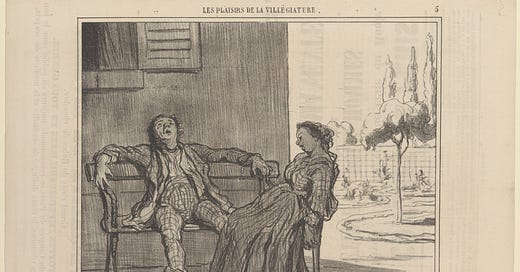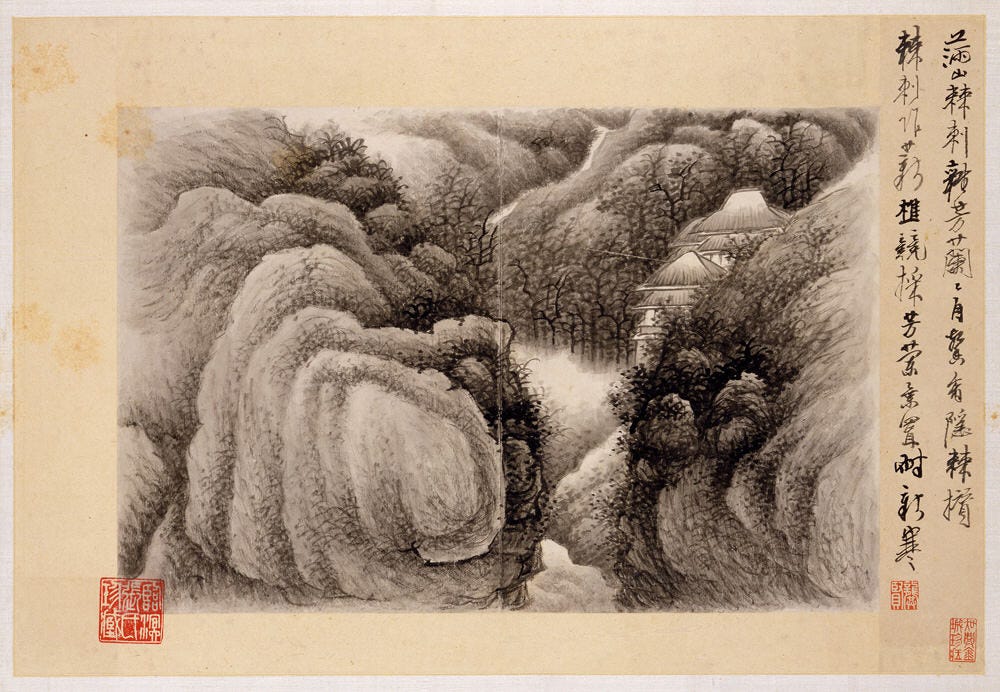Today, we’re continuing our read-along of Aristotle’s Nicomachean Ethics. This is our final post on a specific book, as next week will be a retrospective discussion.
If you want to catch up on the readings (and see what I’ve had to say about the various books), consult the schedule below:
July 8: Book I
July 15: Book II
July 22: Book III
July 29: Book IV
August 5: Book V
August 12: Book VI
August 19: Book VII
August 26: Book VIII
September 2: Book IX
September 9: Book X
September 16: Retrospective
We’ll have our next Zoom call on September 15 at 8 PM Eastern. It will be our general retrospective discussion of the entire Nicomachean Ethics.
To support my work, have access to all posts on Walking Away, and join those Zoom calls, become a paying subscriber.
We’ve come so far, everyone. We spent the entire summer, from the beginning of July to the middle of September, reading Aristotle. If you managed to keep up with the readings, congratulations. If you fell behind, take heart: the posts are always going to be available for free, so read them when you can.
Book X of Nicomachean Ethics is, quite broadly, about pleasure. This is a strange choice, you might think, since Aristotle has been discussing a related concept throughout the work: happiness.
We tend to collapse happiness and pleasure in modern discussions. Happiness is something you feel, we think, and thus it is the same as pleasure. I am happy because I am experiencing pleasure; I am happy only when I am experiencing pleasure; if I am experiencing pleasure, I must be happy.
This, however, is not the Aristotelian view. Happiness is eudaimonia, or flourishing; it is virtuous activity. A related term would be eu zên, or living well. A happy life will likely, maybe even surely, incorporate pleasure, but happiness and pleasure are nevertheless distinct.
We need to be careful, however. Just because Aristotle believed something to be the case, it does not mean that all ancient Greek philosophers felt the same. There were hedonists in Greece, too. And now that we have introduced that term, we need to be clear that ‘hedonism’ does not mean the mindless pursuit of pleasure, but rather a view in which what makes life good. Philosophical hedonists have often been quite moderate in their daily lives.
Aristotle recognizes that pleasure is essential for a discussion of the ethical life, as we educate the young via pain and pleasure, and that the virtuous person takes pleasure in appropriate things (and does not take pleasure in what one ought not to delight in). “People choose the pleasant things but avoid the painful,” Aristotle writes, and he is clearly correct here.
Further, pleasure is said to ‘complete’ activities and actions. Yet pleasure can also spoil activities. If you love the sound of music, then music will distract you from other things, such as listening to speeches. (In more modern American terms: try talking to an NFL fan at a bar while a game is playing on the television.) How one feels about the world, what one takes pleasure in, is going to dictate where your attention is, where your mind goes naturally.
But what is the significance of all this?
Well, if our actions are largely guided by pleasure and pain, so much so that seeking pleasure sometimes swamps our ability to deliberate, then appropriately calibrating what we take pleasure in will affect how we are able to act in key situations.
Taking a step back, we can say that a virtuous person of the sort Aristotle describes is fully aligned – to use a term from Marcus Aurelius, simple – in that he is not pulled in more than one direction. His reason, his passions, his habits all point to the same action in the same circumstances.
So pleasure is clearly going to play some role in all of this.
I mentioned previously that some think pleasure is the good. Eudoxus seemed to think this, and the arguments that J.S. Mill would give in Utilitarianism seem to echo these ancient arguments. Pleasure is clearly the good because all of us choose it; we are all oriented to it; something about our nature, or at least our moral psychology, reveals that pleasure is good. But Aristotle resists these hedonistic arguments, as he agrees with Plato that pleasure mixed with prudence is superior to pleasure alone; this shows that pleasure cannot be strictly identified with what is good. (This is, by the way, an argument from the Philebus.)
Others have thought that pleasure is irrelevant to the good. This is the traditional Stoic view. As I have mentioned many times, the Stoic view of pleasure is that it is a preferred indifferent: a thing preferred over its contrary, yet strictly speaking irrelevant to living a good and happy life. The Stoic view is admittedly difficult to grasp, and it is certainly difficult to put into practice. In contrast, hedonism has some bare plausibility!
But Aristotle’s view is that pleasure is a good, yet it is not the good — though this is complicated by earlier remarks in Book VII about the pleasures of contemplation. (A great resource here is to check out what Richard Kraut has written on Aristotle’s view of pleasure.) Aristotle will still maintain that it is virtuous activity which is the good, as this is happiness. We then can look at what is congruent with a life of virtuous activity and decide which things can and should be deemed pleasurable or worthy of desire.
Early on in our reading of Aristotle, I highlighted that the point of the Nicomachean Ethics was to make us into better human beings. We study ethics in order that we might become good. Aristotle wants us to live good lives.
We have surrendered the idea of living a good life to people who write self-help books. In our cynicism about that genre, we have dismissed the whole project of living a good life. But Aristotle should remind us that this is an important task — this is part of what it is to be human. We are reflective creatures, creatures capable of assessing ourselves and improving. This means we need to learn about ourselves.
We must also learn about the world, however, as Aristotle mentions in Chapter 8. This is when he discusses the virtues of contemplation. The gods and human beings, apart from all other animals, can share in contemplation; thus, only they can be said to be happy.
Yet, for humans, more is needed. Some external prosperity, Aristotle says, will be needed, too. Human beings are not self-sufficient, and so we need support from others (and from our environment).
Thinking of all of this – contemplation, the various virtues, the need for some prosperity – gives us an image of what it means to live a good life.
And so Aristotle concludes the Nicomachean Ethics — but really, there is another chapter. Chapter 9 then sets up a larger, broader discussion. This is when it becomes clear that the Nicomachean Ethics is really a preamble to another work: Aristotle’s Politics.







"...he agrees with Plato that pleasure mixed with pleasure is superior to pleasure alone"
Is one of those first two occurrences of "pleasure" supposed to be some other word?
I am running behind after a couple weeks overseas with minimal time to read, but I just wanted to say that this read along has been super informative and a great exercise overall. It has helped me think and ask questions about the text that I hadn’t considered on precious readings.